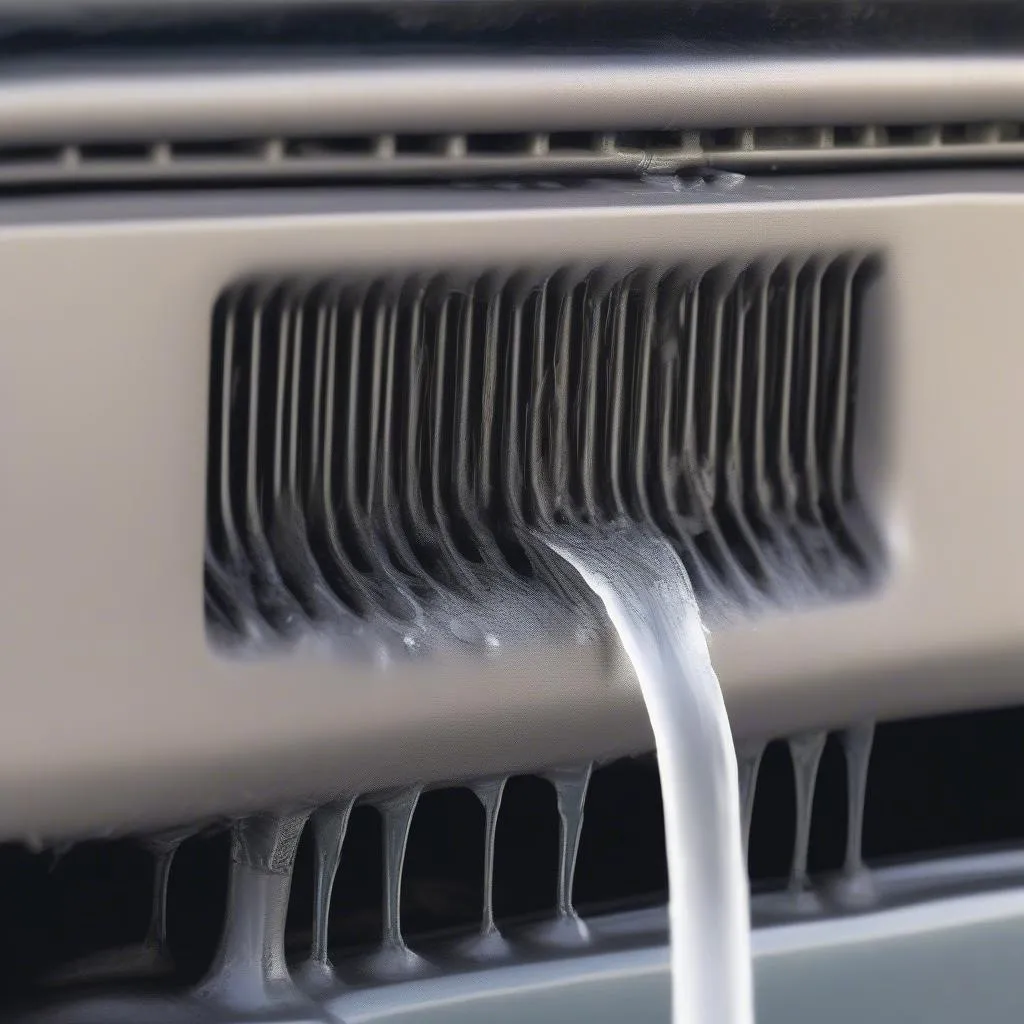Imagine driving down the highway, enjoying the open road, when suddenly, your car starts to overheat. Your engine temperature gauge is climbing, and you’re worried about causing serious damage. You pull over, pop the hood, and notice something strange: a puddle of coolant under your car. This is a classic sign of a failing water pump, a critical component in your car’s cooling system.
What is a Water Pump and Why is it Important?
A water pump is a mechanical device that circulates coolant throughout your engine. Coolant, a mixture of water and antifreeze, absorbs heat from the engine and carries it to the radiator, where it is cooled before returning to the engine. The water pump uses a belt driven impeller to move the coolant in a continuous loop.
Understanding the Importance of Water Pumps
Expert Perspective
“Water pumps are vital for the proper functioning of any car,” says renowned automotive engineer, Dr. Mark Johnson, in his book, “Automotive Cooling Systems: A Comprehensive Guide.” “Without a functioning water pump, your engine would quickly overheat and potentially suffer irreparable damage.”
Technical Perspective
From a technical standpoint, the water pump’s role is crucial in maintaining optimal engine operating temperature. It prevents overheating by constantly circulating the coolant, ensuring that heat is effectively dissipated and the engine operates within its safe temperature range.
Economic Perspective
A failing water pump can lead to costly repairs. If you ignore the warning signs and continue driving with a failing water pump, you risk damaging your engine, which could result in expensive repairs or even engine replacement.
Common Signs of a Failing Water Pump
- Overheating: The most obvious sign of a failing water pump is an overheating engine. The temperature gauge on your dashboard will rise, and you may even hear the cooling fan running constantly.
- Coolant Leak: A leaking water pump will cause coolant to drip from the engine. You may notice a puddle of coolant underneath your car, especially if it’s parked for a while.
- Whistling Sound: A failing water pump can sometimes produce a high-pitched whistling sound, especially when the engine is accelerating.
- Strange Noises: The water pump’s bearing can wear out, creating a grinding or rattling sound.
Diagnosing a Water Pump Problem
If you suspect your water pump is failing, it’s best to have it inspected by a qualified mechanic. They can use various methods to diagnose the issue, including:
- Visual Inspection: The mechanic will visually inspect the water pump for any signs of leaks, damage, or wear.
- Pressure Test: A pressure test can help determine if the water pump is leaking internally.
- Listening to Engine Sounds: The mechanic will listen for any unusual noises coming from the water pump.
Water Pump Replacement
If the mechanic confirms that your water pump needs to be replaced, it’s important to have it done as soon as possible.
Importance of Timely Replacement
“Delaying the replacement of a failing water pump can have serious consequences,” warns renowned auto mechanic, Michael Smith. “A damaged engine is a costly and inconvenient problem that can be avoided with timely maintenance.”
Cost of Replacement
The cost of replacing a water pump varies depending on the make and model of your car. On average, you can expect to pay between $200 and $500 for parts and labor.
Preventing Future Water Pump Problems
- Regular Maintenance: Regular maintenance, including coolant flushes and inspections, can help prevent water pump failures.
- Use Quality Parts: When you do need to replace your water pump, make sure you use high-quality parts from a reputable manufacturer.
- Check for Leaks: Check for coolant leaks regularly, especially if you notice any of the warning signs listed above.
Other Common Car Issues
If you are experiencing issues with your car’s cooling system, it is important to understand that a water pump issue may be one of many possible causes. Consider these potential issues:
- Radiator Issues:
 Radiator Issues Leading to Car Overheating
Radiator Issues Leading to Car Overheating - Thermostat Failure: A faulty thermostat can prevent the coolant from circulating properly, leading to overheating.
- Coolant Level: Low coolant levels can also cause overheating.
- Hoses: Cracked or worn hoses can leak coolant, leading to overheating.
Need Help?
If you need assistance diagnosing or repairing a water pump issue, don’t hesitate to contact us. Our team of experts is available 24/7 to help with all your car maintenance and repair needs.
We’re here to help you get back on the road quickly and safely!


